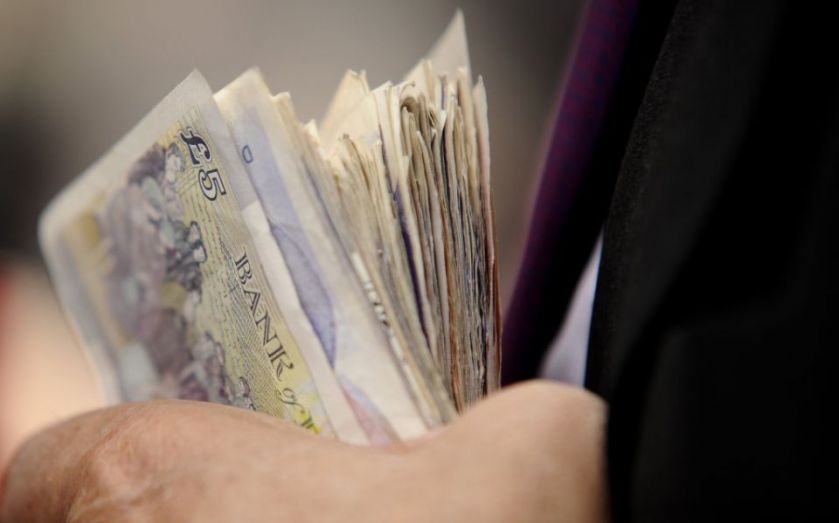Cheap money: Reports of the death of cash have been greatly exaggerated

A landmark proposal has seen the Danish government consider ending the obligation of retailers to accept cash, a global first, with the implication that paper notes and coins could soon lose their grip on their status as legal tender. Figures from the Payments Council released last week, meanwhile, showed that cashless transactions have overtaken the use of cash for the first time in the UK.
However, reports of the death of cash have been greatly exaggerated. Taking the Payments Council’s own figures, cash is in fact projected to stay until at least 2353. This means we won’t see a cashless society in our lifetime, and neither will our children, grandchildren or beyond.
Moreover, Retail Banking Research figures show that cash transaction volumes globally are actually on the rise, even if cashless payments are growing at a faster rate. Almost 90bn cash withdrawals were made at ATMs worldwide in 2013, up 9 per cent from 80.8bn in 2012. That’s 165,400 cash withdrawals at an ATM globally every minute or 2,757 cash withdrawals every second.
In terms of value, more than $13 trillion was withdrawn from ATMs in 2013, up 1 per cent from the previous year. That’s $2.55m withdrawn from ATMs around the globe every minute, or $424,747 every second. And finally, the average cash withdrawal is $161.
Perhaps most importantly, cash serves a vital purpose for those on lower incomes. It’s often overlooked that 3.5m people in the UK only ever use cash.
When the media call time on the use of cash, it is often suggested that paper money is something of a burden. That couldn’t be further from the truth. For the most part, cash is easy to use and access, universally accepted and offers retailers the added benefit of being cheap to process. In fact, it has the lowest costs attached of any mainstream payment method.
For retailers, cash is also the only payment method where they can control processing costs by creating efficiencies in the cycle from payment to bank deposit. Cash is always operable, making it the preferred choice for many smaller firms, which so often have had to turn away a customer because their card machine has failed. How many times have you got in a black cab to find it’s fitted with a broken card reader?
The simplicity of cash is its biggest selling point, with none of the privacy and data security concerns of electronic payments. For this reason, the Bank of England continues to invest in cash as a payment instrument, illustrated by the planned launch of the first new polymer bank notes in 2016.
Cash is not only hugely convenient for small payments, it also captures the hearts and minds of the British public. Bookmaker Ladbrokes is currently taking bets on which historical figure will be represented on the polymer £20 note, sparking widespread debate about who will soon be carried around in the public’s pockets. While I can’t tell you which illustrious portraitist, director or sculptor will make the cut, one thing is for sure. The odds are for paper notes and coins to be here for many many years to come.